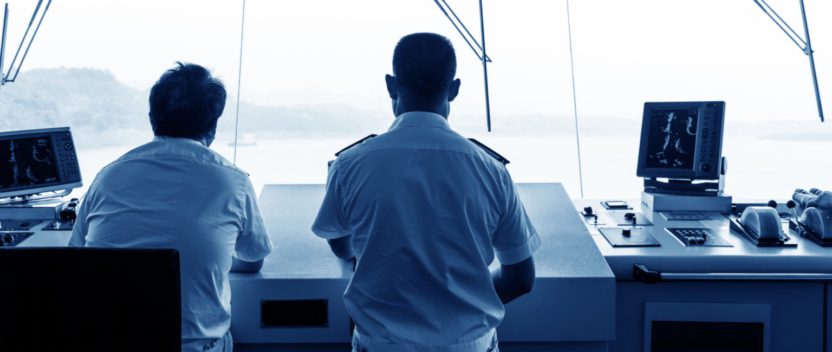German shipping: getting smarter to survive?
If there is a compound word for the degree of suffering a shipping community can go through before it experiences some kind of recovery, German would be the language for it. And German owners would have found cause to use it on a regular basis over the past six years.
The effects of the financial crisis on shipping are well-understood but the impact on the German shipping sector was particularly acute. The country’s owners run the gamut in terms of operations but are specialised in smaller containerships, many financed using the KG private investor system.
This worked fine when times were good but when the ships lost their value, so did the funds and the investors their shirts. At the same time, Germany’s big ship-lending banks – some of the world’s most active – found themselves under pressure to slash loan books, tighten credit terms and unload underperforming assets.
Add an overly-optimistic pre-2008 orderbook to a massive contraction in demand and the ingredients were in place for a major re-ordering of the German shipping landscape. But with the international shipping community descending on Hamburg for SMM, sentiment in the sector is under the spotlight again. How far has the sector weathered the storm and how far is it need from completing something like a recovery?
What is certain is that the transition from a pre-crash industry to a sustainable post-crash one is not yet over. A recent survey of shipowners by consultancy PWC found that few expected increased capacity uptake any time soon – in other words, demand still looks sluggish if you a typical German owner.
Expectations are for stagnating profits and dampened investment activity. Staff consolidation stepped up over the last year to reach a new high with every third company surveyed reducing staff in the last 12 months.
However, there might be light at the end of the tunnel. Consolidation is coming to an end in some areas and some of the decision-makers interviewed assume that in the next 12 months they will need to add ships to their fleet. None of those interviewed envisaged more short-time working or cancellations and postponements of newbuilding construction contracts. As in other sectors and territories, managers are hoping for growth in the coming year and as a result, previous caution around making investment is growing weaker.
None of this – flat profits, increasing costs and a bigger balance sheet – sounds like the good times are rolling. But the emerging trend appears to be a positioning for growth with a weather eye on the horizon.
Few owners are contemplating expanding their fleets in the medium term, but renewal is continuing to take place. In 2010 only 14% of shipping companies had sale and purchase activity on the agenda – a year ago it was 58%. Now a firm majority are envisaging further ship sales in the next 12 months.
The fleet is also evolving in size profile. Since it is axiomatic to container shipping that the lower the unit cost, the more profitable the box move, owners are looking to deploy larger and larger ships. Three out of four of those polled believe that container ships will get bigger in the medium-term and the same applies to gas tankers, bulkers and cruiseships.
They also foresee a smarter fleet in future. This they share with the rest of the industry which has watched as ‘Eco-Designs’ capable of lower fuel consumption have grabbed the headlines and the more profitable charters.
Optimisation in terms of improved fuel efficiency is the primary driver to new investments. German owners, like their counterparts elsewhere, are all too aware that only by deploying such tonnage will they be able to compete for high quality employment.
At the same time, decades-old practices around the use of information technology and the cost of communications appear to be shifting as owners realise they can and should do more to improve operational performance and asset monitoring. This more anecdotal evidence suggests that there is a further investment emphasis on IT, communications technology and software development.
The managers surveyed across the industry generally acknowledged that, within a few years, vessels will be subject to ‘seamless’ tracking. Nearly all those surveyed (93%) believe that so-called ‘smart shipping’ will soon become the common standard.
Digitalisation is already on the agenda, but will play a major role in the future, PWC found. This encompasses not just tracking data but also impacts safety, repair and maintenance processes. Nine out of 10 decision-makers told PWC they envisaged a broad-based digitalisation of maintenance processes in the next few years which assumes that the condition of machines and components on ships will be automatically transmitted to shore.
Among the buzz phrases the researchers heard again and again was ‘the digitalised bridge’ and eight out of 10 of those questioned anticipated that automation and/or digitalisation in shipping would increase exponentially in the next few years.
This implies two significant shifts in the way ships are operated, if not in how profitable their employment will be. Close to 60% of the managers polled agreed that the condition of machines and components on ships would be communicated directly to their manufacturer within the foreseeable future.
As a result, more and more shipping companies will have to introduce a round-the-clock operation on land to control their ships. Two out of three managers questioned concluded that before long, shipping companies will require significantly more IT specialists on land to help them navigate this new operating environment.
Ends


